What Social Housing means to me
 Social Housing means a lot to our new Neighbourhood Officer Emma Brute. Here she writes about her past, and how it informs the work she does:
Social Housing means a lot to our new Neighbourhood Officer Emma Brute. Here she writes about her past, and how it informs the work she does:
Having grown up on a council estate in North Wales, it was a natural career for me to work in social housing.
My fondest memories are of playing “curby” on the road and parents of the estate playing rounders on the school field in front of our house. Everyone knew everyone. We knew who “kicked in” our back door one night, we knew the mother of the toddler who was found crying outside our back door at 3 in the morning, lost.
We were a community, good and bad, living together in the best way we knew how. We were labeled, but we didn’t care.
Social housing as it is now, wasn’t the same then. My mum often comments on how much better she would’ve coped as a single mum, had she received the help and support provided by housing associations and agencies today. But then my mum received help from her mum and my family. The need for families to move to find employment is far greater today, resulting in family support networks breaking down, often leaving vulnerable people on their own without any help.
With this in mind, something I always do as a Neighbourhood Officer is talk to people. We live in an age where email, Facebook and Twitter are common and effective forms of communication but it is easy to forget the person behind a tweet, the face behind a post, the voice behind a message. I speak with tenants all the time on a range of different issues from dumped rubbish to acquiring their home. Only this morning I was speaking to a tenant who is volunteering his homemade sleigh for a Festive event in New Tredegar! It’s fair to say no two days are ever the same.
Facilitating communities to work together to empower individuals is the most rewarding part of the job. A lady who was made redundant recently, attended a surgery I arranged and is now volunteering as a digital inclusion champion for United Welsh. She was so pleased. Having been made redundant myself in the past, I know how this feels and shared her elation in being asked.
The job is busy, it can be demanding but I believe in the need for social housing and want to be a part of it. It has served me well.
Stigma and Social Housing – one man’s perspective
As part of #HousingDay, we asked one of our former tenants – who has asked to remain anonymous – about the stigma he has faced from his time living in homeless hostels, and what social housing has meant to him.
An old saying is “what’s in a name?” Well, not as much as in an “address” in my opinion. The place where you live can often give people the opportunity to be judgmental over who you are and what you are (in their minds); they develop negative and damaging perceptions.
I’ve spent periods in homeless hostels, they were short spells and I had lots of help to move on but life kept delivering blows and I found myself back in hostels over several occasions. All the time I was living in hostels I was unemployed, most of my fellow residents were. But that didn’t stop me looking for work, very hard, day after day. I was willing and able to work but my address was the problem. All local employers knew the addresses of hostels and your address is on your application. You can try to disguise it but it doesn’t work and it goes against you.
I must have applied for hundreds of jobs but I never received a single reply from an employer. I met many decent people in the hostels, down on their luck like me, looking for work just like me, but they too were unsuccessful. This is unacceptable labelling of people, you are not even given the chance of an interview to explain your strengths and skills, merely because of your address, people have made the judgement that because you are in a hostel you are worthless, uneducated, unskilled and a scourge to society.
This is also the way that private landlords look upon benefit tenants and why the greediest of them put rents up much higher than housing benefit levels so that people cannot possibly afford them. What they fail to realise is that employed people are well capable of trashing properties, being guilty of anti-social behaviour and falling behind with their rent. Renting from private landlords has no security at all whether you are in your accommodation for a short period or a longer one.
This is a problem for anyone, but if you are on benefits, things get very difficult indeed when you try and find another home. It happened to me, after a hostel, I was in privately rented accommodation for two and a half years and I thought I was safe. I lost my tenancy merely because the owner returned from abroad. And then I had to return yet again to a hostel, which was very demoralising and led to depression.
“Social housing” is different as it offers people homes that are affordable, especially to those on benefits as rents are set at or below local housing benefit rates which almost eliminates the risk of arrears which can lead to homelessnessthrough eviction. This causes extreme stress and break-up of families.
I myself have recently moved into a home from a social housing provider after a very difficult few years. The overwhelming feeling I have is finally one of security and stability which means I have been able to focus on getting my life back together.
However, because “social housing” often accommodates people on benefits it develops a stigma, for people living at an address that is known to be “social” housing. Plenty of honest hard working people, many on minimum wage live, in “social housing” so why should social tenants have to face this stigma and discrimination from people? What gives people the right to develop such negative perceptions?
I throw this forward as a topic of debate for all.
And a question – could the social housing providers themselves take a more pro-active stance on this issue and help to reduce peoples’ negative attitude? After all, in these hard and difficult times, who wouldn’t want the chance of a secure and well maintained home at an affordable price?
Space Saviours – transforming open spaces
Space Saviours is a dynamic new project helping tenants transform open spaces in their local community. We’ve asked Rachel Lovell, Open Spaces Project Officer at Space Saviours, to tell us about progress to date:
Space Saviours is a 2 year Big Lottery project between four housing associations – United Welsh, Valleys 2 Coast, Bron Afon and Tai Calon – and is aimed at turning empty spaces into great places. The project offers training, support and guidance to help plan, design and transform open spaces.
Workshop sessions were held from April to July this year on Tuesday evenings at Virginia Park Golf Club in Caerphilly. Attendance was good with over 45 people engaging in a variety of informal training sessions hosted by organisations such as Keep Wales Tidy, Play Wales, Sustrans, Natural Resources Wales, The Urbanists and the Federation of City Farms and Community Gardens.
Tenants were able to share and discuss their ideas and explore themes such as natural play, biodiversity, sustainable design, getting around your neighbourhood and community growing.
Targets for the first year of the project are to support and guide 5 Community Projects in each of the four housing association areas and United Welsh tenants and community members had loads of amazing ideas and enthusiasm! 5 Community Projects were selected and matched with appropriate Supporting Organisations to explore landownership, sustainability of the project and to further develop their designs, costings, and plans.
Tenants from New Tredegar have ideas to transform this space into a wildflower meadow that the whole community can enjoy. The space is currently overgrown and very steep, but has lots of potential. This Community Project has been matched with Keep Wales Tidy who will be working closely with the group to develop and finalise their designs and costings.
Newport tenants are enjoying their new housing development, but some are frustrated by the lack of semi-private space outside their block of flats and would also like to develop the outside area to make better use of it.
Some of their ideas have included developing a natural play area for children to enjoy and planting shrubs. They have also been matched with Keep Wales Tidy to fully explore design ideas to provide more private space around the flats and identify the soil to see what can be planted.
Over in Cardiff, a tenant is keen to develop the use of a lovely parcel of land, over looked by many houses and surrounded by beautiful trees into a natural play area for children, parents and grandparents to enjoy.
Currently just used to walk dogs, the area has the potential to be so much more. This project has been matched with an organisation called Play Wales, who specialise in designing natural play areas for all ages.
Two other Community Projects involve a group of residents from Trevelyan Park in Caerphilly who want to design and install better access for pram and wheelchair users around their estate and develop play areas that the community can enjoy. They have so many ideas! They have been matched with Ground Work Caerphilly who will develop designs and costings and Play Wales to fully explore the dynamics of the potential area.
By November of this year, all 5 Community Projects will have a project plan and the Space Saviours Project Officers will support them in identifying and obtaining funding to realise the project.
The next round of workshop training sessions are currently being developed and will take place in Spring 2015. If you would like to find out more about Space Saviours, please feel free to call Rachel Lovell, Open Spaces Project Officer on 07990 835363 anytime.
Creative thinking
As part of our 25th anniversary celebrations, our Director of Housing and Communities Lynda Sagona takes a look at the culture of United Welsh and how that has shaped the way we deliver for our communities.
Who was it that said ‘the only thing that is constant is change’? Having Googled it I can confirm it was Heraclitus. I’ve not met him but it is a good quote!
Gosh, have we all seen some change in the past five years? … and much of that change has been challenging. But it has challenged us to work differently, with tenants, with partners and as a team and while we may have been fearful of it and nervous about the future (just as I was when I joined the organisation 5 years ago!) we can now look back and recognise that actually that change, in many cases imposed on us by the external environment, has resulted in some very positive outcomes. Gone are the days when we did things because ‘that’s how we’ve always done it’.
The prospect of Welfare Reform caused us to take a step back, review how we work with our tenants and really consider how best we can align our services and our support. So what’s changed as a result of that? We talk to our tenants more and we know much more about them. We see our tenants more – some of them now work with us and many help us to develop our services. We meet with them to support them with money management. We tailor delivery of information and services to meet individual needs.
We are thinking outside of the traditional box and we recognise that we will need to continue to do this. If we are to address need in an environment of significantly reduced public spending, we must continue to work flexibly, to develop new solutions to housing need, to feel confident to flex tenures and to deliver services in new ways.
When I joined the sector it was very traditional in its approach to service delivery. At United Welsh we’ve broken the mould. Our asset management delivery model, embodied in Celtic Horizons, is the first of its kind in Wales, employing our tenants and offering training opportunities. We deliver repairs on a day and at a time to suit the customer, minimising visits with the introduction of the Complete Property Service. We work productively with social enterprise partners. There’s more to do but we are continually listening and learning.
The recent partnerships we have developed are fresh and sustainable. They are not partnerships that are imposed on us but those forged from shared values and a common vision to make a difference to people’s lives. If ten years ago someone had said that a Registered Social Landlord would develop, in partnership with the Local Authority, a library and a clinic at the heart of a town centre regeneration initiative, making a massive difference to the community, people would have laughed and told us to stick with building homes.
At United Welsh we are very lucky to have a team that is always up for the challenge, constantly reviewing what we are doing and how we are doing it. To have a team that is so engaged and committed to doing its best for our customers provides us with such a fantastic platform for development and creativity. It is the ‘Can Do’ attitude.
More change ahead? I think that Heraclitus would say deffo… Are we up for it? Deffo!
A staff-focussed perspective
As part of our 25th anniversary celebrations, our Director of Corporate Services, Gareth Hexter looks at how United Welsh put its staff at the centre of everything it does.
When I joined United Welsh in November 1998 I was impressed by how organised and professional the Association seemed. I had just left a smaller community based housing association, which was far more relaxed and almost amateurish by comparison. I was also impressed with the scale and quality of work carried out by the Association and the passion of the staff. But after a while I started to think that United Welsh was a bit over-hierarchical and bureaucratic and I remember the dreaded timesheets, where everyone in the organisation had to breakdown their days down into 20 minute slots.
We were due to undertake a review of our ‘procedural agreement’ with the recognised union, Unison in 2001 and this became a great opportunity for exploring a new way of working. We used the Involvement and Participation Association (IPA) to facilitate the project and we launched a new ‘partnership agreement’ with the union in 2002. This agreement embraced the core principles of partnership working – to recognise legitimate differences whilst acknowledging the common agenda of achieving business success. The Partnership Group (TPG) held its first meeting in 2002 and we used the IPA’s Option Based Consultation model to ensure that we fully consult with our staff on proposals that affect them before we made a final decision. We trained our managers in how to consult and supported this by establishing a new role in the organisation, Partnership Manager. This approach to involving our people at the earliest stage was transformational and it led to a culture shift.
We looked for ways of maintaining the momentum and decided to enter the Financial Times Great Workplaces Competition in 2004 and were staggered to be awarded 5th Place in the UK. We celebrated by giving all our people a ‘great day off’. We went one better the following year, gaining 4th place in the UK and top not for profit organisation in the European Union. They were heady days and we sent everyone for a day in Paris to celebrate.
Since 2005 we have seen an explosion in the activity and success achieved by United Welsh. We have seen our turnover double from £12m to £24m, the number of homes in management increase from 3,600 to 4,900 and the number of people we employ increase from 105 to 227. We continue to provide quality accommodation for people in need of homes and first class support for people who have additional support needs. We have established Celtic Horizons, set up Together, achieved Investors in People Gold, built an award winning library and have raised over £100m in private finance.
Yet we remain committed to fully engaging with our workforce and have even introduced our own engagement model (Choice Based Engagement), which has achieved national recognition. We know that our people are our biggest asset and it is through our people that we will achieve continued success. And for me this is why United Welsh remains a Great Place to Work.
Then and now
Luke Merlini takes a look at United Welsh’s first ever annual report, and reflects on the changes that a quarter of a century has brought….
When we first formed way back in 1989 we had a total of 1800 homes, spread all across South Wales. In fact, our properties stretched all the way from Swansea to Magor, with most of them concentrated in the Rhymney Valley and Blaenau Gwent.
From the very beginning we have provided homes for the elderly, those with support needs and the wider public – but on a much smaller scale to the work we do today. We had sheltered housing schemes in Hengoed, Aberbargoed and Cardiff, while in Cwmbran we offered accommodation both to the elderly and those with learning difficulties.
As soon as we started operating as an independent housing association, we were inundated with requests from people looking for a home. We built 30 new homes in 1989 and ‘rehabilitated’ – the annual report’s word, not mine – a further 54 houses that were in a poor state when we took them on. In our first year we let 336 homes, with various transfers and exchanges making up the bulk of those. The remaining 100 were from our waiting list. In our annual report of 1989 we noted that we had 630 people on our housing waiting list, and commented that “we cannot possibly help everyone who applies to us”.
Fast forward 25 years and things have changed significantly. Although we have many more homes than before – nearly 5,000 of them – we are no longer spread right across South Wales, and are much more focussed on the South East. We’ve sold our properties in Swansea, Magor and Cwmbran and the majority of our homes are now in Cardiff, Caerphilly and Blaenau Gwent. Interestingly, thanks to political restructuring we actually cover more than twice the number of local authority areas than we used to.
We now have nearly 800 homes for the over-55’s through our Living+ brand, with accommodation spread all throughout our areas. We provide more than 800 homes for people with support needs, too – which makes us the biggest provider in Wales. We work with organisations like the Salvation Army, The Wallich and Gofal to give the very best care we can.
We built 127 new homes in 2013/14, which is more than most other housing associations in Wales – but it’s clear we all need to build more. Last year we let more than 500 homes… but unfortunately there is still no way we can help everyone who applies to us. Our waiting list for Caerphilly alone has nearly 3,000 names on it – and that’s before you factor in the common waiting lists for Cardiff, Blaenau Gwent and the rest.
It’s interesting to see that although the times – and hairstyles! – have changed, our ethos has been a constant throughout. Yes, we work on a much bigger scale than before, but our values haven’t changed. We are here to support the people and communities of South Wales.
And we always will be.
25 years of United Welsh
To celebrate our 25th anniversary, our Chief Executive Tony Whittaker has been musing on the changes he’s seen since joining the organisation in 1992.
I was rummaging through my desk drawers the other day in search of something or other, pulling out a variety of old and useless bits of tech- a blackberry with broken screen, an old vodaphone PDA which was my first touch screen device requiring the use of a detachable stylus, an early incarnation of the i phone, again hopelessly outdated. I know, I really need to recycle these. At the bottom of the drawer I came across a “Sanyo Mini Talk Book”, into which I used to dictate stuff and then pass the tape to my PA to dutifully type for me; no batteries in it but rather worryingly there was a tape inside. So swapping the batteries from my mouse I nervously listened to a younger version of me dictating a number of letters in response to letters I had no doubt received that week, one to an unhappy tenant, one to the regulator as well as a number of “internal memos” to various members of staff. It made me realise just how much the workplace has changed and the part that technology has played in bringing about that change. Our first email communication at United Welsh was sent out on 5th February 1998. I remember well an earnest debate we had around that time when someone boldly suggested that we work towards allowing every member of staff to have a PC on his or her desk. Nonsense, I said! People would never get any work done!
What do I know.
I suppose the point of this reflection is not only to chart just how far we have come in a relatively short period of time but also to consider the impact the digital revolution will have on the way we deliver services going forward. The majority of our customers are regular users of smart phones or tablets and demand more and more services via their handheld- the use of twitter and facebook as means of communicating requests or giving feedback is rising exponentially and we ignore the power of these media at our peril. A member of the baby boom generation and a bit of a #diNOsaur I may be, but I do recognise the needs of Generations X and Y both inside and outside the workplace which impact on how we resource and deliver our services going forward. A note of caution however. There was an interesting debate in Inside Housing last week, where a high profile housing Chief and prolific tweeter was criticising the housing sector for failing to embrace the digital change. Reading some of the responses to this debate, I was taken with those of Julie Fadden, the inspirational CEO from South Liverpool who feels that there is too much “boring stuff” out there on social media and I tend to agree. They are powerful communication tools but are so often used in the workplace to post trivial and meaningless bits of information. Don’t waste your time on boring stuff, she implores – spend it making your neighbourhoods fantastic places to live in with IT systems that enable tenants to run their tenancies better. Spot on.
Now I feel the urge to send a memo on the subject. Where’s my Sanyo……
Measuring Sustainability – a guest blog
By Dr John Littlewood, Sustainability Consultant
In 2012, I worked with United Welsh’s Head of Development Gareth Davies to win one of the tranche seven post construction and in-use grants for Y Llaethdy from the Technology Strategy Board, as part of the £8 Million UK-wide programme for Building Performance Evaluation (BPE).
Y Llaethdy is a low impact and partially low carbon micro-community of 13 households (9 flats and 4 houses) off Aberfawr Terrace in Abertridwr. It is owned by United Welsh and was built in 2010 by Green Hill Ltd. The houses and flats were designed and built to Development Quality Requirement (DQR) standards and levels three and four respectively of the code for sustainable homes. Eight of the flats were built to low carbon and low impact standards following funding from DECC.
Since we won the funding in 2012, we have been monitoring the performance of all the properties to measure how sustainable they are.
As part of this work, we have interviewed tenants about their experiences of living at Y Llaethdy, as well as the design and delivery team on the design and construction intentions for the project. We have also been monitoring the climatic conditions, internal conditions and energy use in four properties since July 2013.
We are doing this to better understand how the properties perform in comparison to an ever changing climate; whether and how building design and heating and ventilation system design intentions have translated into construction and operation; and how occupants behave and use their homes.
We will continue to monitor and evaluate the performance of Aberfawr Terrace until September this year, with the results used to establish new standards of building performance.
Watch this space!
#LoveEmptyHomes
By Michala Rudman, Project Officer, Empty Homes Wales
With so many Empty Homes in the UK, and so many people in need of safe, suitable, affordable housing, Valentine’s Day seemed an ideal opportunity to ask owners, partners and Empty Homes professionals to fall in love with their empty homes again. I’ve said it before, but working with Empty Homes is arduous and takes an absolute age – You have to be dedicated, patient and in it for the long haul. Suffocating under a mountain of never-ending paperwork, legality and bureaucracy is tempered only by the hope that all the hard work will pay off, and you can help create a lovely home in the community again.
For me, there’s great satisfaction in visiting a property and seeing the vision you promised the owner becoming a reality. Speaking to the long suffering neighbours is also a boost, as they are usually at their wits end about the problems caused by the empty property next door. People are still shocked that Empty Homes Wales exists purely to help them, and are really keen to engage with us and do something about their empty property. There has been great feedback about the positive assistance from the Local Authorities as well, and its important people know they have options.
This #LoveEmptyHomes campaign is about getting the Empty Homes Wales message out there in as many ways as possible. Increasing levels of digital inclusion means that one message can be shared and spread far and wide with just the click of a button – the wonders of technology mean I know that so far the social reach for this is to nearly 111,000 people – which is amazing!
The purpose of #LoveEmptyHomes is to increase the ways people can get in touch with me, rather than just by me directly contacting them. Yes, we have posted cards directly to owners as this works (I’ve already had 3 responses this morning!), but with #LoveEmptyHomes I can reach so many people who come into contact with Empty Homes directly or indirectly – those who live next to them, know about them in their community, as well as those that own them.
Off the back of this campaign, I will have raised awareness to the point where the next few weeks and months will be very busy and I will never want to see another Valentine’s Day card again! There is so much help and support out there, from our partners, Local Authorities and Empty Homes Wales, and we just need to get the message out.
And perhaps the first step in that all that starts with them knowing about me and Empty Homes Wales.
United Welsh wins Project of the Year at the National Housing Maintenance Forum Awards
By Steve Bowen, Procurement Project Manager, United Welsh
In the immortal words of the Four Seasons, ‘Oh what a night’!
At the National Housing Maintenance Forum (NHMF) annual awards in Stafford on Tuesday 21st January, we sat with baited breath as the awards were read out; first the Gas Service awards – lots of delightful whooping and hollering and flue-analysers being handed out to the superstars of the Gas Service world.
As I sat there, enjoying the atmosphere, I thought back over the work that had brought us here.
The Celtic Horizons ‘project’ had commenced in 2011 with an acknowledgement that we needed to improve customer satisfaction across the services we provided. This was supported by a report carried out by the University of Bath in conjunction with our Property Team, and was followed by a series of hearts and minds seminars facilitated by Echelon.
The bold decision to adopt a ‘wholly owned subsidiary’ model with expertise and experience in the form of a main contractor partner resulted in an Official Journal of the European Union – or OJEU – notice being placed in February 2012. After a Bidders’ day, the pre-qualification questionnaires; the Invitation to Submit Detailed Solutions; the informative Competitive Dialogue and Best and Final Offer evaluation process involving over 30 of our staff and a team of tenant representatives we finally appointed Mears, who had risen through the process into a worthy partner for us.
Back to the awards evening… we had submitted an entry into the ‘Best In-house maintenance service provider’ category for our Complete Property Service Project that went live a few days ahead of schedule in March 2013 – on time, within budget and with all the quality boxes ticked.
This was the third award to be announced and when the announcement came that Broadlands HA from Norwich had won, we looked around our team and thought our chance had passed for an award this year… apart from our Project Lead Luke Mitchell who insisted “we are still in with a chance!”
And so we arrived at the final award of the evening – the overall Project of the Year; the most prestigious award! And the announcer used words such as “outstanding project…unanimous choice of the judges….innovative…exceptional use of both staff and tenants…..with all the evidence showing the improvements in service!”
“And the winner is….UNITED WELSH!!!”
At that point Lynda Sagona – our Project Sponsor at United Welsh and keen supporter of the process at every stage – looked as though she had won the lottery; Jane Nelson, Mears Executive Director, punched the air in delight, Luke Mitchell said “told you” and none of us moved! We were then applauded onto the stage to receive the award and pose for some photos.
It’s been brilliant to be involved with Celtic Horizons… and winning this award was the icing on the cake!

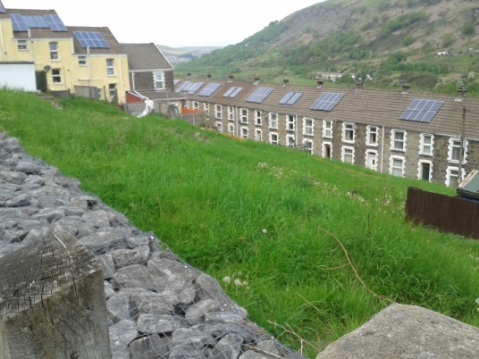
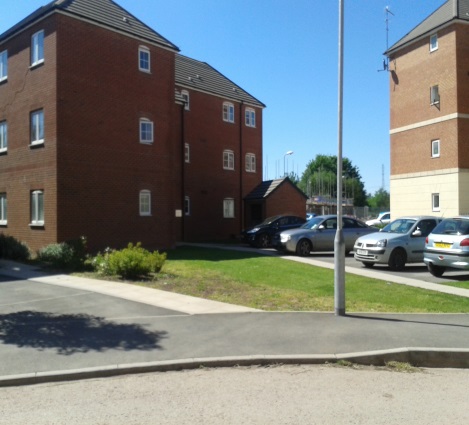

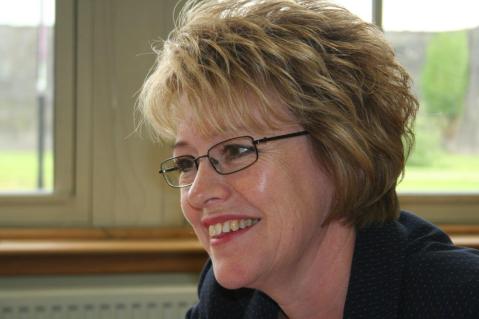





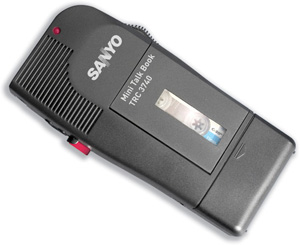


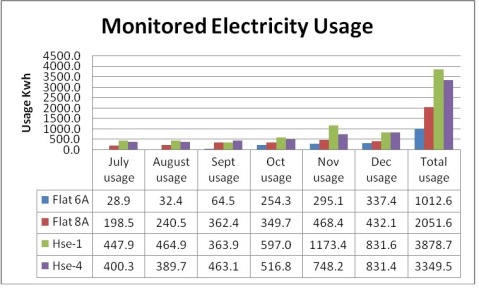


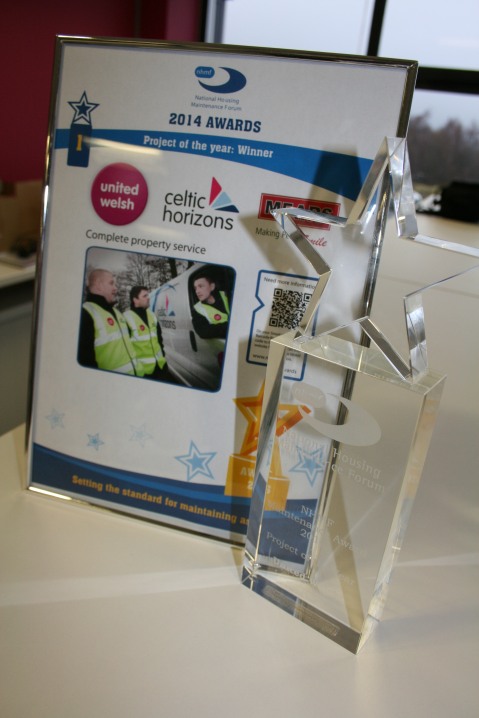
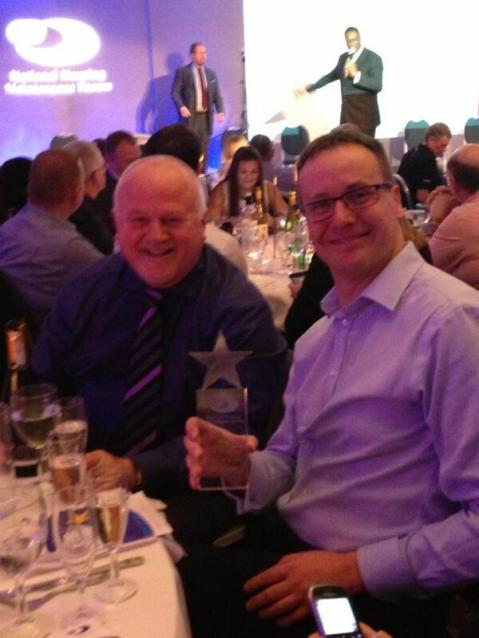
Recent Comments